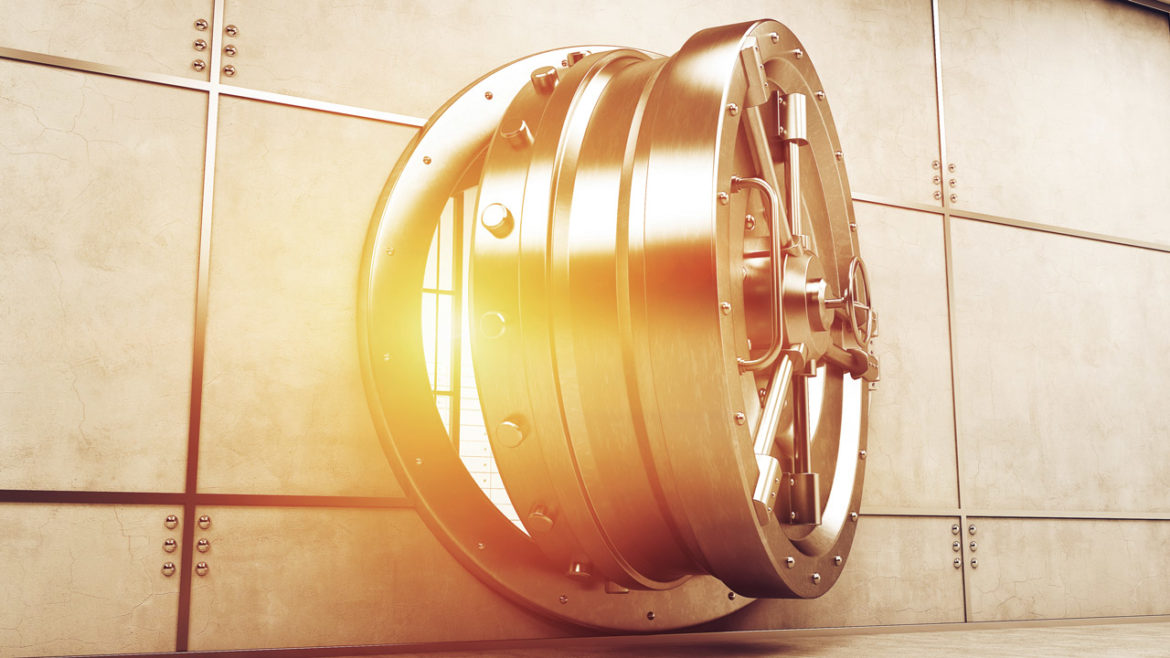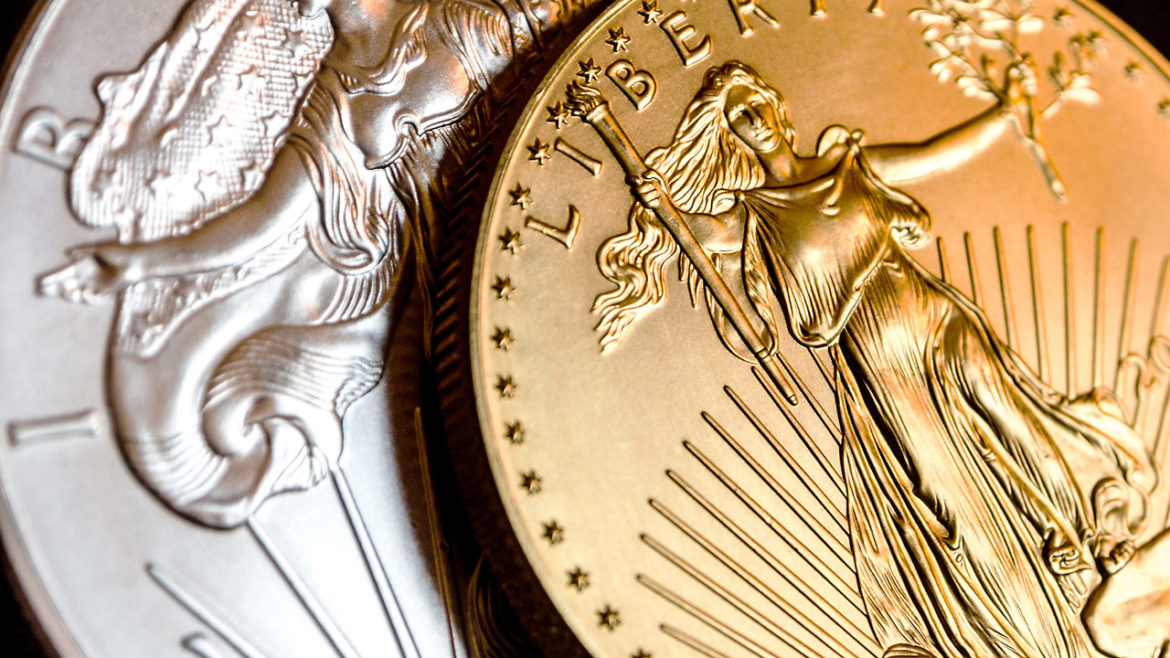Gold has all the potential to go unprecedentedly high. But silver will be gold on
Site:
Precious metals news
 Why Yellen Doesn’t Lose Sleep Over US Borrowing That Alarms Most Americans
Why Yellen Doesn’t Lose Sleep Over US Borrowing That Alarms Most AmericansMay 31, 2023 - 05:30:26 PDT
“We have the highest debt than we ever had before,” House Speaker Kevin McCarthy — who negotiated a deal with the Biden administration to trim outlays, and must steer it through Congress this week to avert a default – said on May 24. “I just don’t think that’s right.” Plenty of others, including Federal Reserve Chair Jerome Powell, have warned that the US debt trajectory is “unsustainable.”
The European Central Bank said that financial markets will be vulnerable to negative shocks as it continues the fight against inflation, with real estate among the sectors at risk.
Prepare for Retail Apocalypse Part II. While this could be considered a continuation of a trend that started years ago the number of closures about to occur will take things to a whole new level. "Soft underbelly" is a phrase that refers to the most vulnerable part of something, whether it be an organization, a system, or a physical object.
For Latin American leaders trying to curb poverty in their own countries, China is a success story. Having experienced staggering economic growth the past four decades, China has brought an estimated 800 million of its citizens out of poverty. The pandemic hit Latin America harder than any other region in the world, and as countries look to emerge from the economic devastation of lockdowns, China offered the trade and investment that Latin American leaders can’t resist.
China’s economic recovery weakened in May, raising fresh fears about the growth outlook and prompting calls for more central bank action to counter the downturn.
 Global Markets-Drop Ahead of US Debt Ceiling Vote; China Data Rattles Nerves
Global Markets-Drop Ahead of US Debt Ceiling Vote; China Data Rattles NervesMay 31, 2023 - 05:09:00 PDT
Global shares fell on Wednesday ahead of a crucial vote in Washington on the U.S. debt ceiling, while commodities and the Chinese yuan came under pressure after data highlighted faltering growth in the world’s second-largest economy. Data showed China's manufacturing activity fell more than expected in May, while services growth -- which has been one of the few bright spots...
Over the last several years, central banks globally have added gold to their reserves at a historically high rate.It doesn't appear the buying spree will end anytime soon.According to the World Gold Council 2023 Central Bank Gold Reserve survey, 24% of central banks plan to add more gold to their reserves in the next 12 months.
In March, I warned that the commercial and investment real estate markets could be the next thing to break in this bubble economy. A recent article in the Wall Street Journal put a face on my warning.
When we talk about the spot price of gold and silver, or the return on precious metals investments, some people are quick to remind me that I'm not factoring in premiums.What exactly are premiums?
Despite all of the mainstream talk about a strong, resilient economy, corporate bankruptcies through the first four months of 2023 came in at the highest level since 2010. Meanwhile, monthly bankruptcy filings have hit numbers last seen during the peak of the pandemic.According to data from S&P Global Market Intelligence, there were 235 corporate bankruptcy filings through April. That's a 116.5% increase over the same period in 2022.
You don't have to believe me, but the Guardian News reported in February that the U.S. Pension Fund Market was on the "Brink of Implosion." I agree, as the 2022 State Of U.S. Pension Funds Report data confirms that "State Pensions are Distressed or Fragile"...
Ye Huiling, a 25-year-old middle school teacher in Shenyang, Liaoning province, has been purchasing gold products for the last three years.
May 30, 2023 - 13:18:37 PDT
So far, however, we are witnessing symbolic actions that eventually spell a currency crisis, but we are all guessing when that is.
Gold bounced back from early losses on Tuesday, as the dollar pulled back and Treasury yields slid on wider market optimism about the U.S. debt ceiling deal.
Global debt levels soared by $8.3 trillion in the first quarter of 2023, climbing to $305 trillion, nearly the record high set in the first quarter of 2022, according to the Institute of International Finance. This means almost 335% of GDP.
 'There Will Be A Reckoning': GOP Rep. Calls For McCarthy's Ouster Over Debt-Deal
'There Will Be A Reckoning': GOP Rep. Calls For McCarthy's Ouster Over Debt-DealMay 30, 2023 - 13:08:43 PDT
Republican lawmakers have threatened to exact revenge on House Speaker Kevin McCarthy for what they say is a terrible debt deal. Rep. Dan Bishop (R-NC) told reporters on Tuesday that he plans to formally initiate the process, saying the "motion to vacate has to be done."
May 30, 2023 - 13:05:36 PDT
We shoulda known better.
 Companies Push Prices Higher, Protecting Profits but Adding to Inflation: NYT
Companies Push Prices Higher, Protecting Profits but Adding to Inflation: NYTMay 30, 2023 - 13:01:58 PDT
Some of the world’s biggest companies have said they do not plan to change course and will continue increasing prices or keep them at elevated levels for the foreseeable future.
Cut-rate sales and sales efforts attest to the troubled state of the office market, which is suffering one of its worst downturns since World War II because of the weak return-to-office and high interest rates.' New York City developers are starting to unload lower-quality buildings at deep discounts, cracking open a frozen real-estate market.
 Downtown LA’s Office Distress Shows the Pain Coming for Cities: Bloomberg
Downtown LA’s Office Distress Shows the Pain Coming for Cities: BloombergMay 30, 2023 - 12:50:47 PDT
From a distance, downtown Los Angeles can look like the Wizard of Oz’s Emerald City, a shimmering skyline with the Hollywood Hills and San Gabriel Mountains forming a picturesque backdrop. Up close, its buildings tell a bleak story of the turmoil roiling US commercial real estate.








